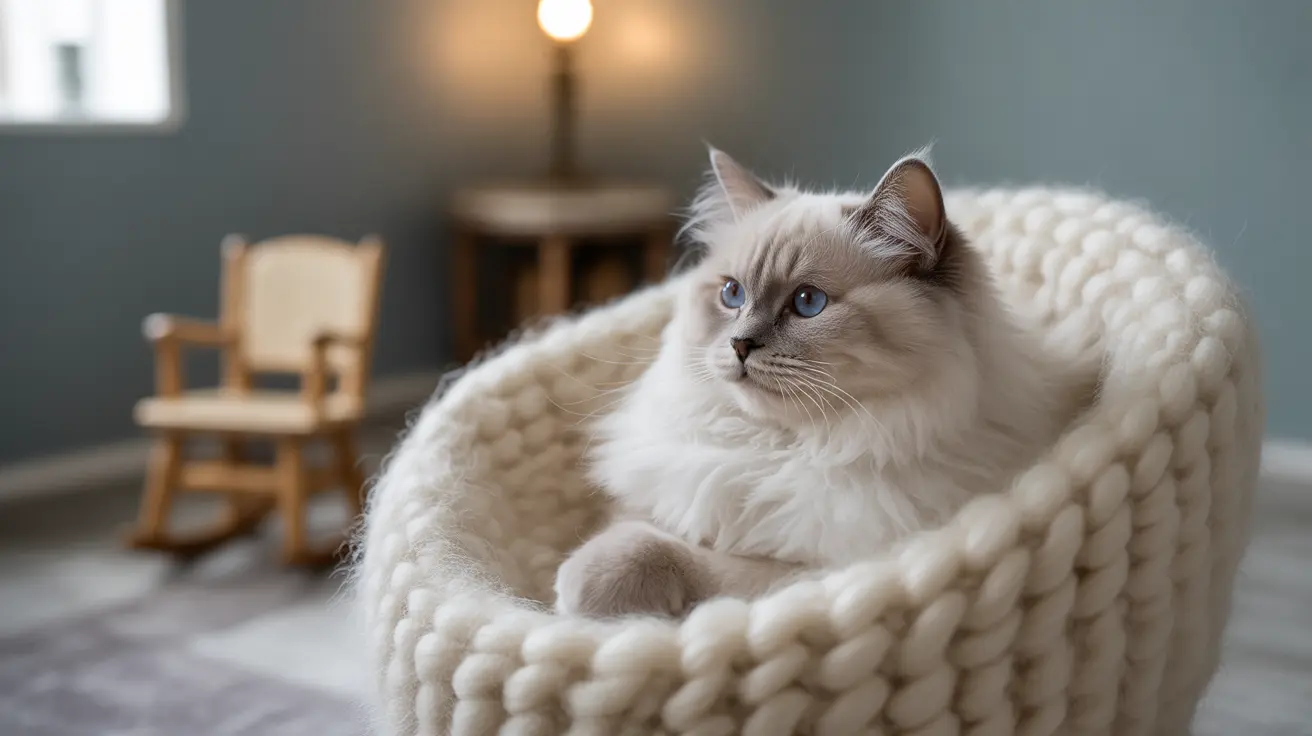Losing a beloved cat at home can be an overwhelming experience, filled with both emotional distress and practical uncertainties. This guide will help you navigate the immediate steps, options, and considerations when your cat passes away at home, ensuring you can handle this difficult situation with dignity and care.
Understanding what to do when your cat dies at home is crucial for providing a respectful farewell while taking care of necessary practical matters. Let's explore the essential steps and options available to you during this challenging time.
Immediate Steps After Your Cat's Passing
Confirming Your Cat's Death
Before proceeding with any arrangements, it's essential to confirm that your cat has truly passed away. Gently check for signs of life by looking for:
- Breathing movements in the chest area
- Heartbeat (place your hand on the left side of the chest)
- Response to gentle touching
- Eye movement or reflex
If you're uncertain, contact your veterinarian immediately, as cats can sometimes appear deceased while in a severe medical crisis.
Initial Care of Your Cat's Body
Once you've confirmed your cat's passing, take these immediate steps:
- Place a towel or absorbent material beneath your cat
- Gently position their legs close to their body
- Wrap them in a clean, soft blanket
- Keep the body in a cool, quiet place if immediate transportation isn't possible
Options for Handling Your Cat's Remains
Professional Services
Several professional options are available for handling your cat's remains:
- Veterinary clinic services
- Pet cremation facilities
- Professional pet funeral homes
- Mobile veterinary services that offer at-home collection
Home Burial Considerations
If you're considering home burial, be aware of these important factors:
- Local regulations regarding pet burial
- Proper burial depth requirements
- Location restrictions (distance from water sources)
- Environmental considerations
- Weather and soil conditions
Creating a Meaningful Memorial
Honoring your cat's memory can be an important part of the grieving process. Consider these memorial options:
- Creating a memorial garden
- Commissioning a custom portrait or piece of jewelry
- Making a photo album or digital tribute
- Donating to an animal charity in their memory
- Planting a tree or special plant
Supporting Your Family and Other Pets
The loss of a cat affects the entire household. Here's how to help everyone cope:
- Allow other pets to say goodbye if they show interest
- Maintain regular routines for remaining pets
- Be open about grief with family members
- Consider pet loss support groups or counseling
- Keep your cat's memory alive through positive conversations
Frequently Asked Questions
What are the first steps I should take immediately after my cat dies at home?
First, confirm your cat has passed by checking for vital signs. Then, wrap them in a clean blanket, place them in a cool, quiet location, and contact your veterinarian or pet cremation service for guidance on next steps.
How do I confirm that my cat has really passed away before making arrangements?
Check for breathing, heartbeat, and responsiveness. Look for signs like relaxed muscles, no eye movement, and absence of breathing. If uncertain, contact your veterinarian immediately for professional confirmation.
What are the options for handling my cat's remains, such as burial or cremation?
Options include private or communal cremation, home burial (where legally permitted), or professional pet cemetery services. Each option has different costs and considerations, so discuss with your veterinarian or local pet funeral service.
How can I create a meaningful memorial to honor my deceased cat?
Create a memorial through photos, artwork, garden stones, or charitable donations. Many pet parents find comfort in creating a special space or tribute that celebrates their cat's life and personality.
How do I help myself, my family, and other pets cope with the grief of losing a cat at home?
Allow everyone to grieve in their own way, maintain routines for other pets, consider joining a pet loss support group, and share memories together. Professional counseling can help if grief becomes overwhelming.
Conclusion
While losing a cat at home is never easy, being prepared and understanding your options can help you navigate this difficult experience with grace and dignity. Remember that grief is a natural response to losing a beloved pet, and there's no right or wrong way to handle this situation. Take the time you need to say goodbye and honor your cat's memory in a way that feels right for you and your family.






